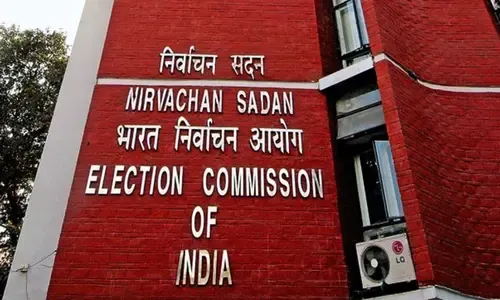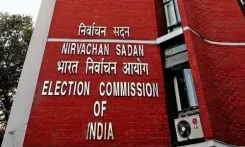Will GST 2.0 Drive Consumption Growth and Lower Inflation?

Synopsis
Key Takeaways
- Projected consumption boost: Rs 5.5 lakh crore
- Anticipated GST revenue increase: Rs 52,000 crore
- Average revenue loss: Rs 85,000 crore
- Impact on CPI inflation: Reduction by 20-25 basis points
- Economic growth projection: 1.6 percent of GDP
New Delhi, Aug 20 (NationPress) A significant boost in consumption amounting to Rs 5.5 lakh crore is projected to yield an extra Rs 52,000 crore in GST revenue for FY26, effectively compensating for the anticipated revenue drop of Rs 45,000 crore stemming from the GST 2.0 reforms, as reported on Wednesday.
The introduction of GST 2.0 is expected to catalyze a surge in consumption, leading to increased tax revenues, reduced inflation, and enhanced economic growth, according to findings from SBI Research.
The report states, "The average revenue deficit could hover around Rs 85,000 crore. For FY26, this may be pegged at Rs 45,000 crore. However, the overall headline revenue loss is likely to be contained alongside a concurrent transition of sin goods from the 28 percent slab to the 40 percent slab."
While the GST 2.0 framework may include an average revenue loss of Rs 85,000 crore, it is also estimated to stimulate consumption by Rs 1.98 lakh crore.
When combined with tax reductions, the overall impact could result in an additional Rs 5.31 lakh crore in consumption spending throughout the economy, which equates to 1.6 percent of GDP.
Previously, analysts raised concerns regarding the government's fiscal predictions being jeopardized if borrowing escalates to balance out revenue losses from GST tax reductions. However, SBI Research dispelled these worries, asserting, "The fiscal deficit for FY26 is unlikely to be surpassed. Fears within the debt market seem to be somewhat exaggerated."
In terms of inflation, SBI Research indicated that the GST rate on essential goods, such as food and clothing, is anticipated to drop from 12 percent to 5 percent. This adjustment may lead to a decrease in CPI inflation for this category by 10–15 basis points, considering a 60 percent pass-through effect on food products.
The adjustment of GST rates for services is forecasted to result in a 5-10 basis points dip in CPI inflation for other goods and services, factoring in a 25 percent pass-through effect. Overall, CPI inflation is expected to be moderated by 20 to 25 basis points.
On average, the Centre has outperformed its projected tax revenue by Rs 2.26 lakh crore over the past four years.
–IANS
aar/na










